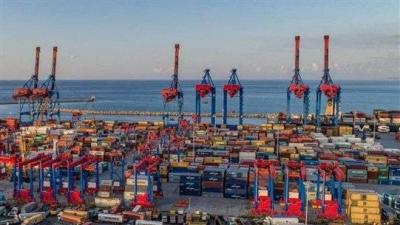What the authorities want from the "customs dollar" is to increase their tax revenues and feed the treasury, overlooking that raising the tax by 13 times all at once will reduce the purchasing power of families and create an inflationary path on top of paths spurred by the Central Bank through its monetary policies. This is a patchwork approach promoted without any plan that alleviates the repercussions of the decision on families and prices in the market. The problem is that there is a portion of foodstuffs affected by the decision, such as canned vegetables with a 35% tax, cheeses at 20%, meats between 5% and 20%, candies at 20%, salt at 15%, and frozen vegetables at 20%. The list goes on, meaning that the aim of the customs dollar is to indiscriminately reduce consumption.
The president of the Association of Food Importers, Hani Bahsali, states: "The rise in prices will lead to a decline in consumption, which encourages traders to smuggle to avoid paying high customs duties." Therefore, he opposes "increasing fees only instead of pursuing other sources of income like improving tax collection, expanding the tax base, and making the tax system fairer."
This randomness in dealing with the crisis has pushed traders to a preemptive movement regarding the approval of the "customs dollar," which began about a year ago. Eli Zkhour, president of the International Maritime Chamber in Beirut, indicates that "the number of containers imported for local consumption in the first half of this year reached 130,000 containers, compared to 117,000 containers during the same period last year, an increase of 12,950 containers or 11%." Imports rose by 11% for various goods included in the containers. The number of used and new cars imported also increased to 13,287 vehicles, compared to 8,208 vehicles last year, marking an increase of about 5,000 vehicles or 62%. Zkhour explains that this is "an attempt to benefit from the low customs duty today, while selling goods at a high price after the proposal is approved to accumulate profits."
According to agreements made between Lebanon and European and Arab countries, goods imported from them are completely exempt from customs duties, even if local alternatives exist. Bahsali believes the solution is to "exempt all imported foodstuffs and basic materials that enter into local food production from customs duties." The president of the Association of Used Car Importers, Eli Qazzi, describes the decision as "a fatal blow to the sector." He estimates that "car prices will surpass one billion Lebanese pounds, with an increase of between 70% to 80%," which will result in stagnation in sales and threaten the continuity of car dealerships.




